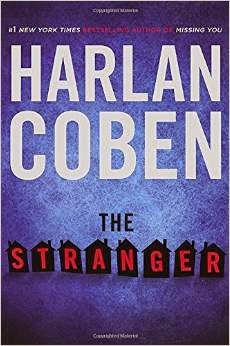CHRISTMAS CUSTOMS--1790s to Now
The holidays are over for another year. Since our modern
Christmas traditions are an amalgam of customs from all over the world and many
are recent additions, I wondered how Will Rees (main character in The Shaker Murders) and his family, as
well as the Shakers, would have celebrated this holiday. Yes, the Shakers were
Christians – a fact in dispute at this time – and would have observed this
holiday.
The giving of presents,
the decoration of the houses with evergreens, the suspension of enmity and the
proclamation of peace were all features of the festival right from the
beginning. (That is, with some interruptions. The Puritans thought the
celebrations took away from the worship of God and banned all jollity.)
Caroling, for example, has been a feature of the season since the middle ages. The
evergreen wreaths also have had a long history. The Etruscans used wreaths, a
tradition that continued into Ancient Greece and Rome. The different plants
symbolized different virtues. Oak leaves meant wisdom. Laurel leaves were used
to crown winners. Our evergreen wreaths are constructed of evergreens to
represent everlasting life. The Advent wreath, with its white candles, was
first used by Lutherans in Germany in the 16th century. And while the giving of
presents has long been a feature of the holiday, it has not always been
practiced on Christmas Day. During the time of Henry VIII, presents were
exchanged on New Year’s Day.
Some our customs, ones that we think are essential to the
holiday, are new additions. A visit to Colonial Williamsburg reveals a village
decorated with candles and evergreen boughs. But where are the trees splendid
with glittering ornaments? Where are the Christmas cards?
Well, the tree did not become a feature of the holiday until the
Victorian age. Although known in England before Queen Victoria married Prince
Albert, the fir achieved its popularity after the Queen adopted it. Like so
many British customs, this one crossed the Atlantic. Our Christmas lights are
descended from the candles used to decorate the tree in Christian homes in
early modern Germany. And the first commercial Christmas cards were not created
until 1843 by publisher Sir Henry Cole. The practice of sending cards did not
cross the Atlantic until 1874
What about the hanging of stockings? Well, this tradition has a long
history. According to some historians, this is a custom that stretches all the
way back to Odin. Children put out their boots filled with food for Odin’s
horse to eat and Odin would reward them with gifts or candy. Like so many pagan
customs, the practice was adopted and Christianized. Hanging stockings became
connected with Saint Nicholas.
So, let’s talk about Old Saint Nick, known in the US as Santa
Claus. Because a central tenet of Christ’s teachings was alms to the poor,
charity has long been a feature of the holiday. Even the Shakers who kept
themselves separate from the World and celebrated simply, went out with baskets
of provisions for the needy.
There are a lot of stories about the history of Santa Claus. He
is at least partly based on St Nicholas of Myra who gave away his fortune to
the poor. The German Christkind and the Dutch Sinterklaus are also pieces of
our modern Claus. Christmas had been personified -made into a person – as early
as the fifteenth century but the modern Santa Claus in his red suit is a
nineteenth century creation that has been added onto over the years. Now even
the reindeer have names, courtesy of the poem “The Night Before Christmas”
(originally titled “A visit from Saint Nicholas) by Clement Clarke Moore. With
the popularity of the ‘Elf on the Shelf’, the elves are now bringing gifts
before the big day.
Alms to the poor has
always been a feature of the celebration. Even the Shakers, who kept themselves
apart from the World, brought baskets to the needy.
Bio: Eleanor
Kuhns is the 2011 winner of the Minotaur Books/Mystery Writers of America First
Crime Novel. A lifelong librarian, she received her Masters from Columbia
University and is currently the Assistant Director of the Goshen Public Library
in Orange County New York.
Website
URL: www.eleanor-kuhns.com
Blog
URL: www.eleanor-kuhns.com/blog
Facebook
URL: www.facebook.com/Eleanor-Kuhns
Twitter:
#EleanorKuhns




Comments